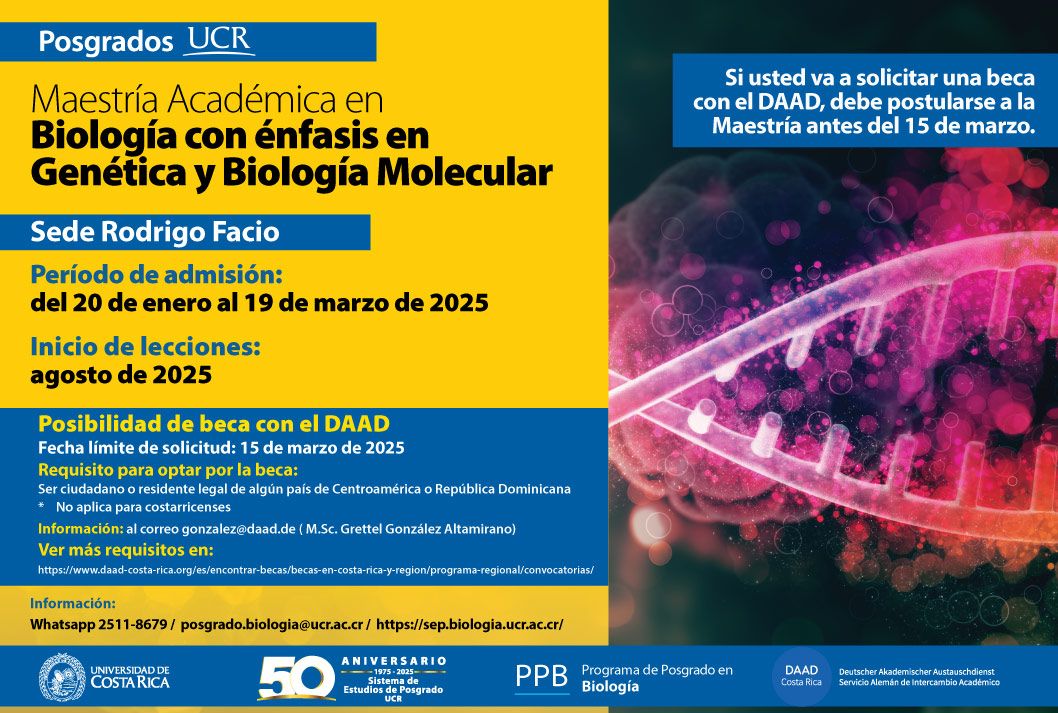Author: Mario De León
Becas programa DAAD
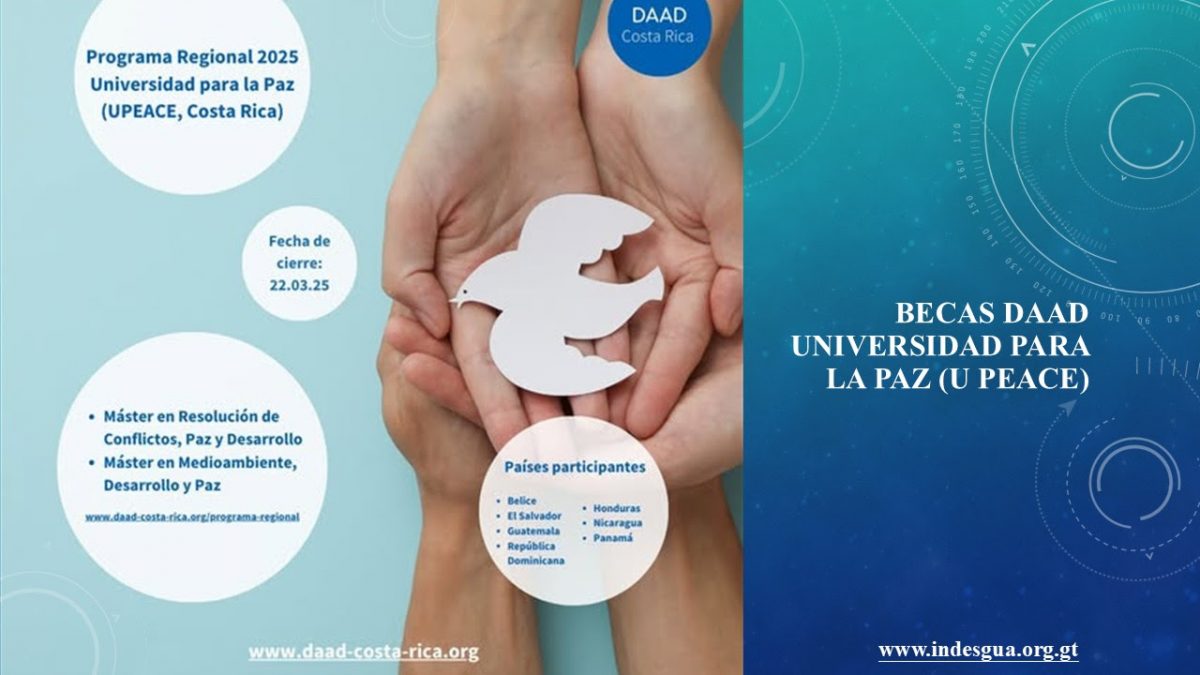
BECAS COMPLETAS del DAAD para los programas de Maestría 2025 de la Universidad para la Paz (UPEACE):
Master en Resolución de Conflictos, Paz y Desarrollo
Master en Medio Ambiente, Desarrollo y Paz
Becas de investigación en Alemania
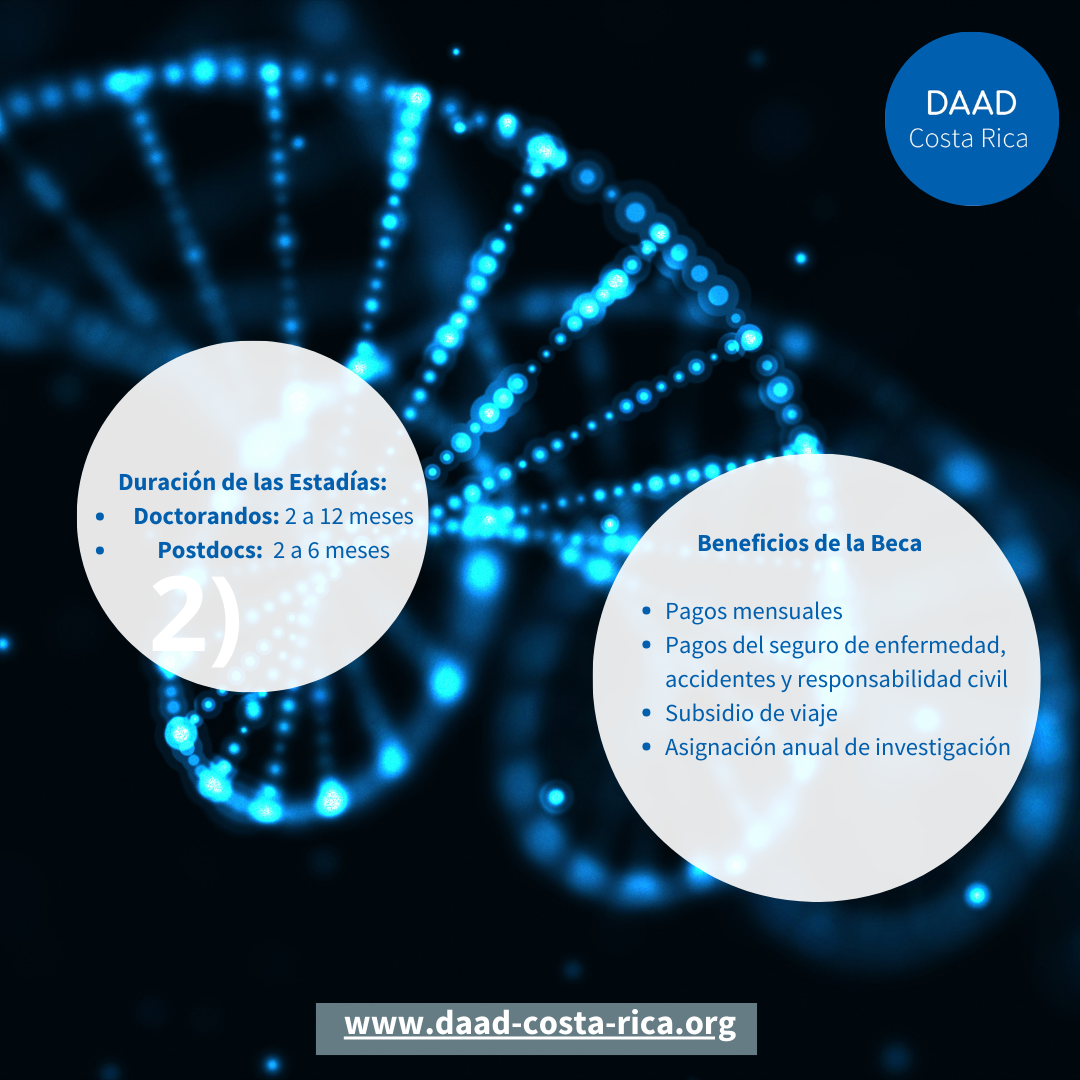
Este programa de becas de investigación brinda a doctorandos y postdocs en su fase inicial de todas las disciplinas la oportunidad de realizar proyectos de investigación o continuar su formación en una universidad o un centro de investigación en Alemania:
- Doctorandos: Estancias de 2 a 12 meses
- Postdocs: Estancias de 2 a 6 meses
Fecha de cierre 12 de marzo de 2025
Recopilación de evidencias de experiencias lideradas por mujeres en la gestión local de los recursos hídricos en Costa Rica
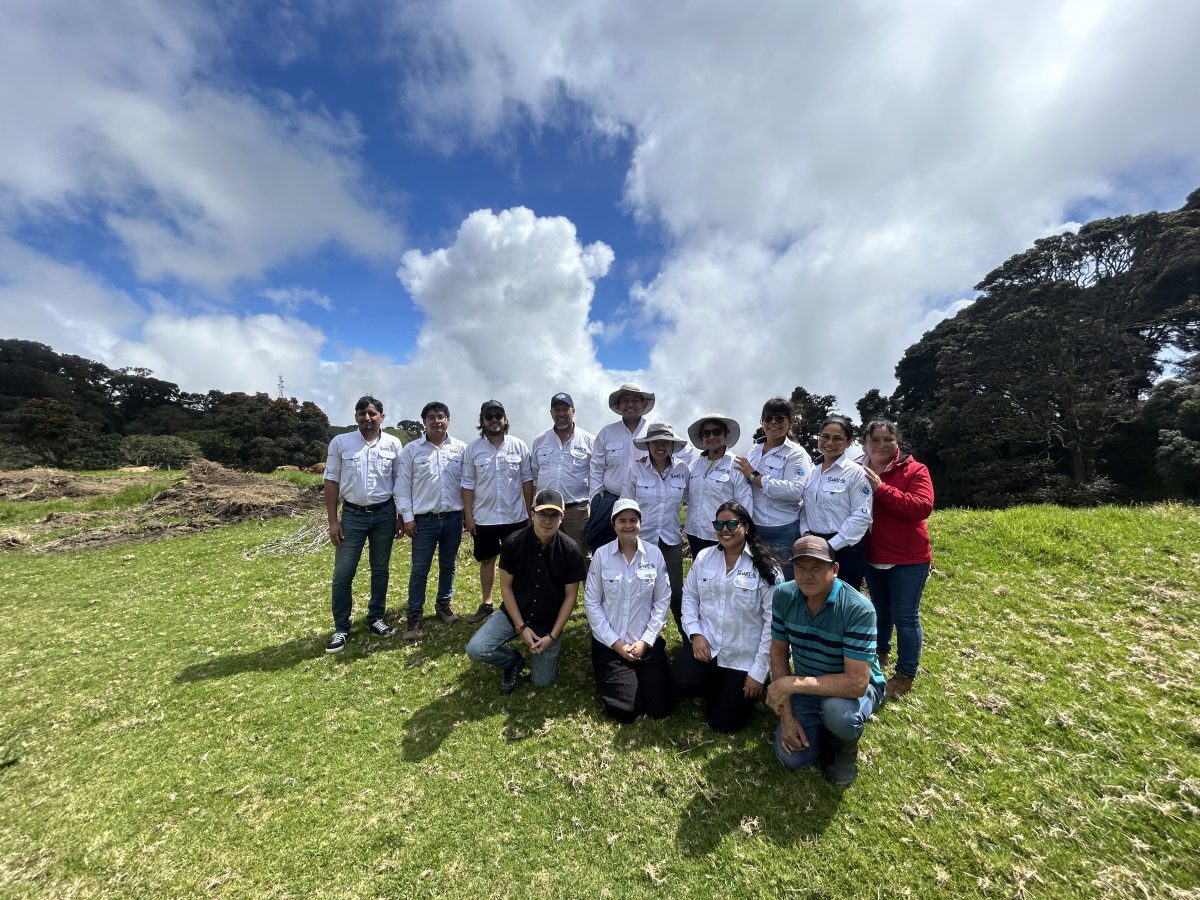
En el marco de las actividades del Proyecto “Hacia una Gestión SMART y Sostenible del Agua en Comunidades de Centro América a Través de Investigación y Educación Innovadora e Inclusiva del Agua” (Gestión SMART-S del Agua), el equipo conformado por personas investigadoras de Guatemala, México y Honduras visitaron Costa Rica, del 21 al 25 de octubre, para conocer las experiencias locales de gestión de los recursos hídricos, especialmente aquellas lideradas por mujeres, en dicho país.
La institución anfitriona de la visita fue la Escuela de Administración Pública de la Universidad de Costa Rica, de la cual se visitaron dos sedes: Ciudad Universitaria Rodrigo Facio y Sede del Caribe, para obtener las perspectivas respecto al uso y gestión del agua en distintos contextos geográficos y culturales.
Los primeros dos días de la visita consistieron en un espacio de intercambio de conocimientos entre el equipo de personas investigadoras e invitadas de instituciones socias como el Programa de las Naciones Unidas para el Desarrollo Costa Rica (PNUD), el Centro Agronómico Tropical de Investigación y Enseñanza (CATIE) y la Asociación Coordinadora Comunitaria de Servicios para la Salud (ACCSS). Durante estas sesiones, se analizó la conexión entre la explotación de los recursos naturales y la explotación patriarcal; se conocieron algunas experiencias WASH (agua, saneamiento e higiene, por sus siglas en inglés) en comunidades de Guatemala y se obtuvieron más insumos para comprender la gestión del agua en Costa Rica a partir del modelo de Asociaciones Administradoras de Sistemas de Acueductos y Alcantarillados Rurales (ASADAS), organizaciones privadas, sin fines de lucro que brindan un servicio público para la administración local del agua. Asimismo, se visitó el Centro de Investigación en Contaminación Ambiental (CICA) y el Centro de Investigación en Electroquímica y Energía Química (CELEQ), para conocer las capacidades instaladas para el desarrollo de proyectos de monitoreo y mejoramiento ambiental, así como las experiencias obtenidas por dichos Centros.
Durante el tercer día de la actividad, se realizó la visita de campo a la ASADA Potrero Cerrado, en donde su Junta Directiva, el equipo de administración y algunas personas miembros del equipo fontanero recibieron a la delegación del proyecto. La visita arrancó con una presentación sobre el funcionamiento, por parte de dichos equipos, y posteriormente se visitaron dos nacientes que suplen del recurso hídrico a la comunidad, ubicada en Cartago. A lo largo de la jornada se resaltó la necesidad de un monitoreo con base en la comunidad que permita a la población conocer la calidad del agua que obtienen para su consumo.
Durante el cuarto día, el equipo de personas investigadoras, se movilizó a la Sede del Caribe para visitar el Laboratorio de Química. Se recibió inicialmente una charla sobre la gestión del agua en la ciudad de Limón, específicamente el manejo de los drenajes a través de un emisario submarino, por parte del representante de Acueductos y Alcantarillados (AyA). Asimismo, se observaron las presentaciones de personas estudiantes de licenciatura, sobre sus proyectos de investigación para graduación en una feria de posters organizada por la sede para la delegación del proyecto Gestión SMART-S del Agua. Estos proyectos buscan contribuir a la solución de problemáticas de contaminación por plaguicidas y salinización del agua en la región.
Durante esta semana de trabajo se lograron avances significativos en la consolidación de las iniciativas clave del proyecto SMART-S para la gestión del agua en Centroamérica. Se obtuvieron insumos esenciales para la generación de los productos de investigación y se fortalecieron alianzas con socios estratégicos. Asimismo, se conoció más de cerca el modelo de gestión local del agua en Costa Rica, especialmente en lo relativo a las experiencias lideradas por mujeres, y se contextualizó la gestión ambiental como un elemento para sistemas sociales más inclusivos.
The project Gestión SMART-S del Agua es ejecutado por el consorcio de investigación conformado por el Centro Universitario de Occidente de la Universidad de San Carlos de Guatemala (CUNOC), la Universidad de Costa Rica (UCR), la Universidad Pedagógica Francisco Morazán (UPNFM) y el Tecnológico de Monterrey (TEC), en el marco del proyecto regional “Fortaleciendo sistemas inclusivos de ciencia e innovación en América Latina a través de una red de investigación colaborativa” implementado por el Consejo Superior Universitario Centroamericano (CSUCA), la Comisión para el Desarrollo Científico y Tecnológico de Centroamérica y Panamá (CTCAP) y la Secretaría General del Sistema de la Integración Centroamericana (SG-SICA), financiado por el Centro Internacional de Investigaciones para el Desarrollo de Canadá (IDRC por sus siglas en Inglés).
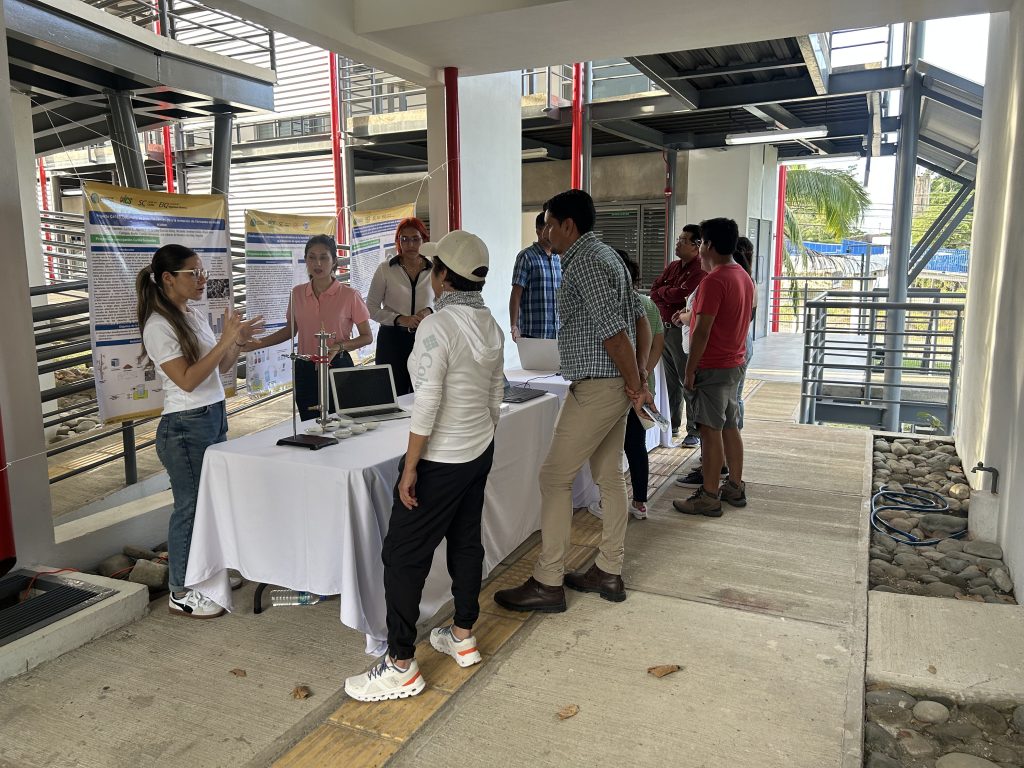
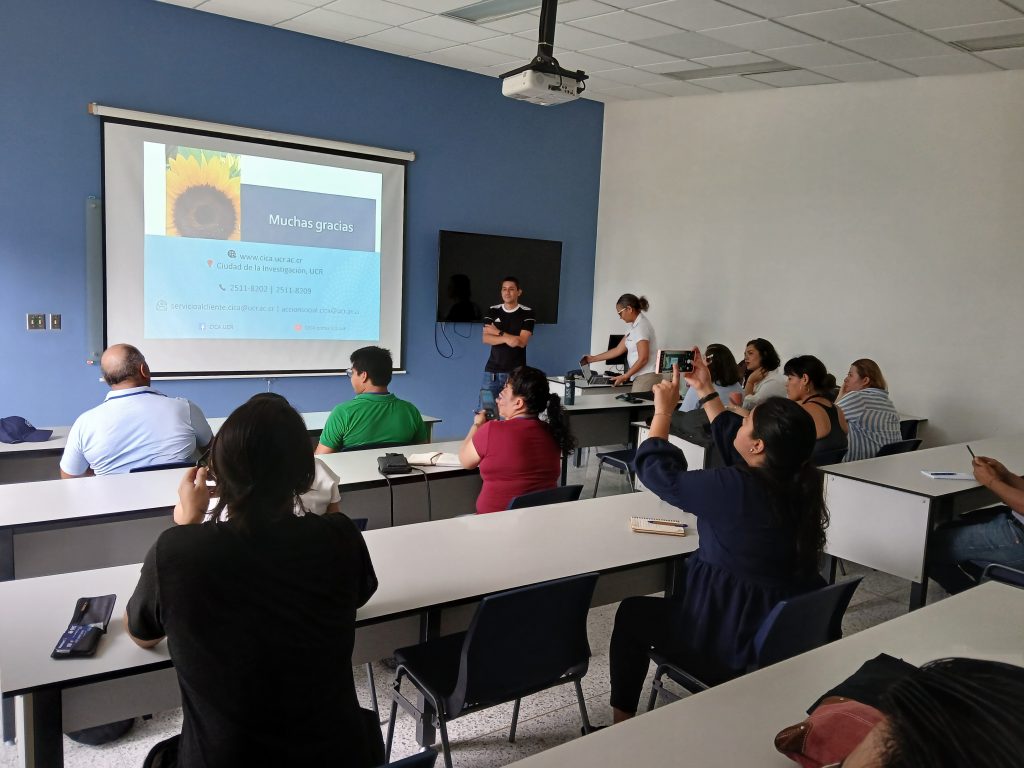
Pronunciamiento de la SG-CSUCA en apoyo a la UP
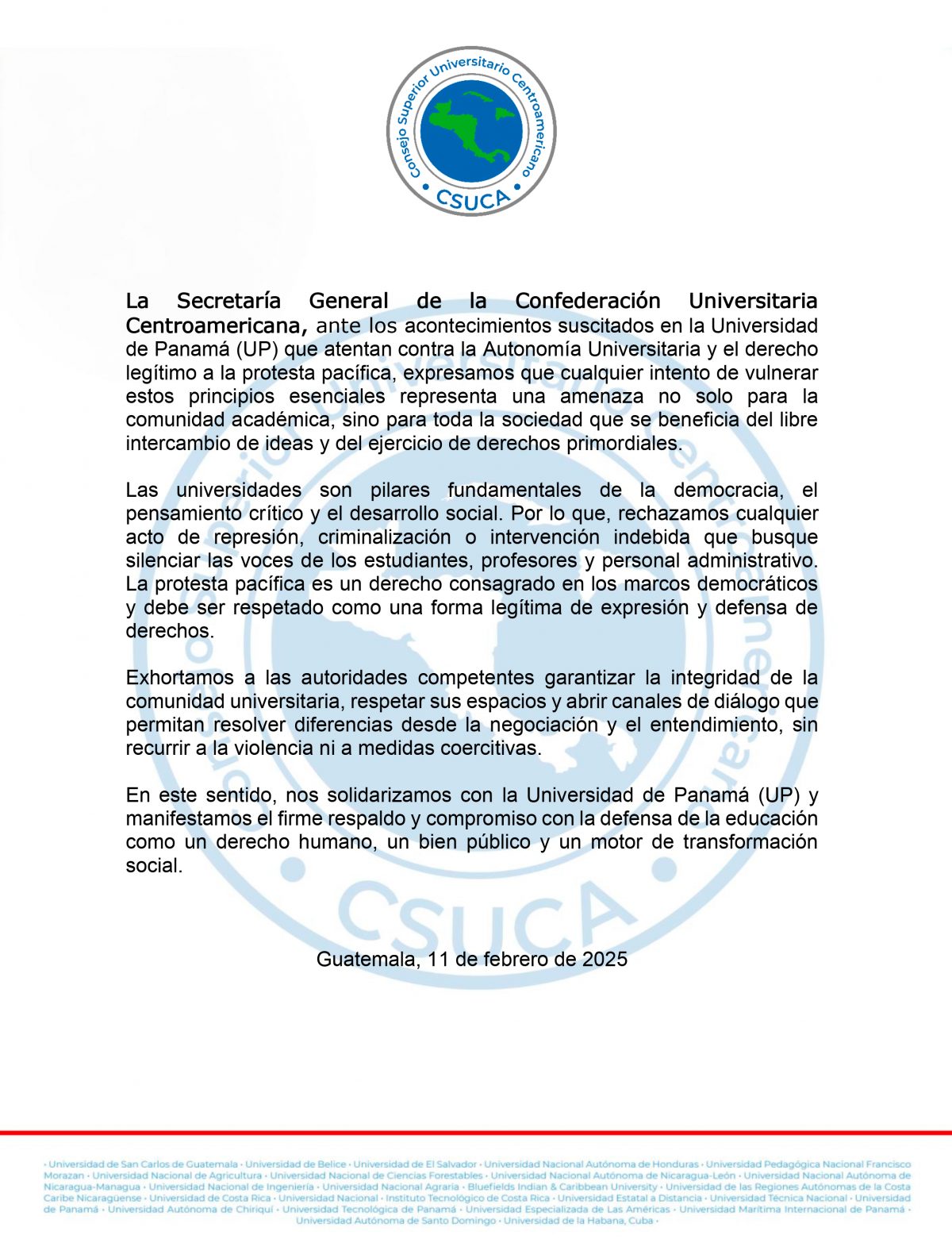
Maestría Académica en Hidrología
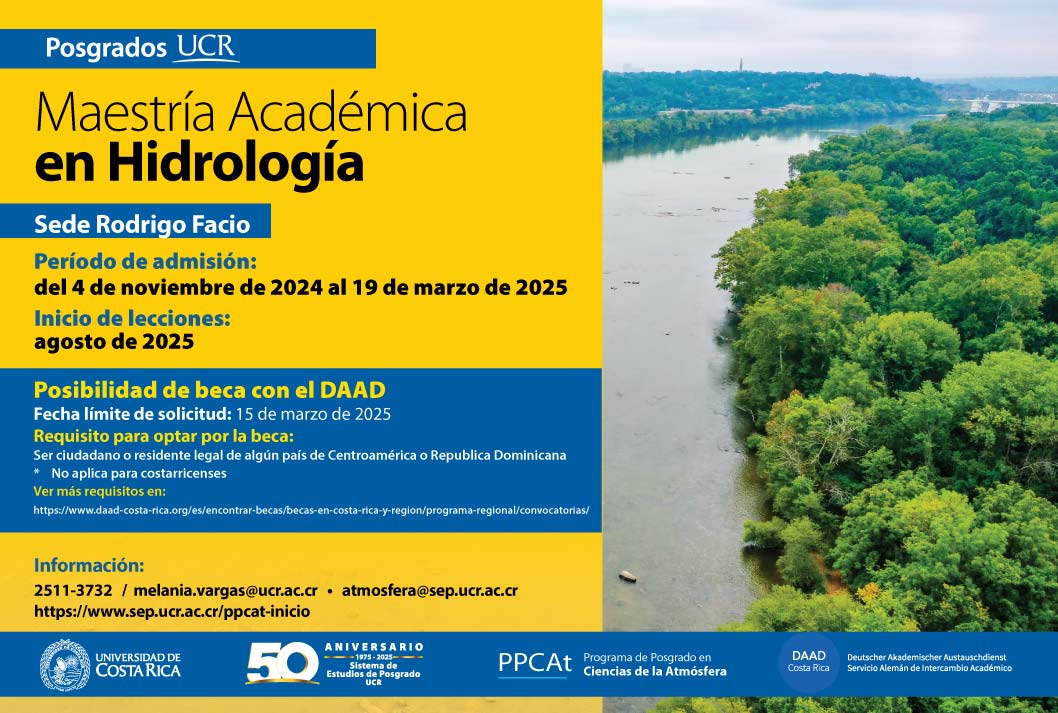
PRESENCIAL – Inicio de lecciones: agosto de 2025
Período de admisión: del 4 de noviembre de 2024 al 19 de marzo de 2025
Posibilidad de beca con el DAAD – Fecha límite de solicitud: 15 marzo de 2025
Requisito para optar por la beca: ser ciudadano o residente legal de algún país de Centroamérica o República Dominicana * No aplica para costarricenses
Ver más requisitos en: https://www.daad-costa-rica.org/es/encontrar-becas/becas-en-costa-rica-y-region/programa-regional/convocatorias/

